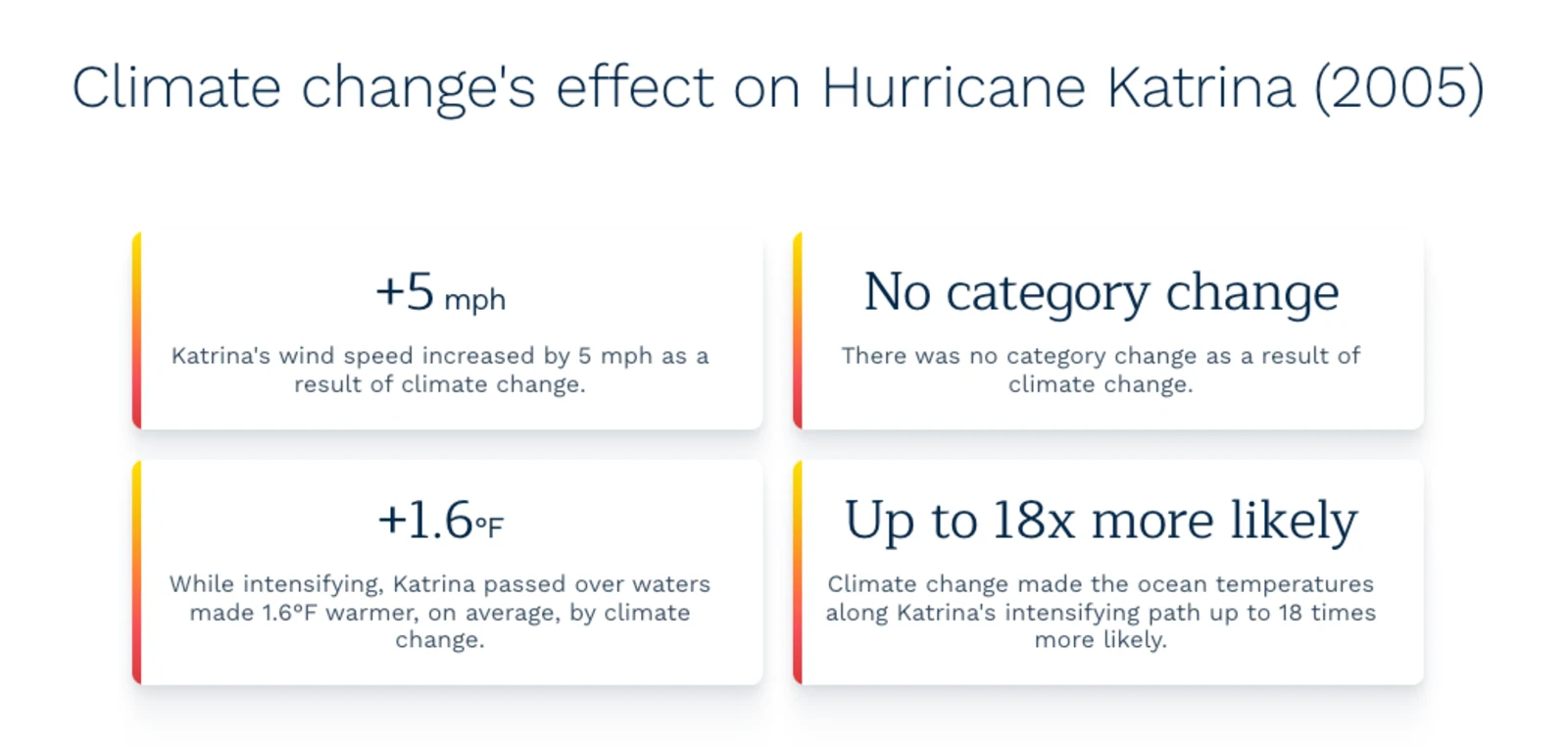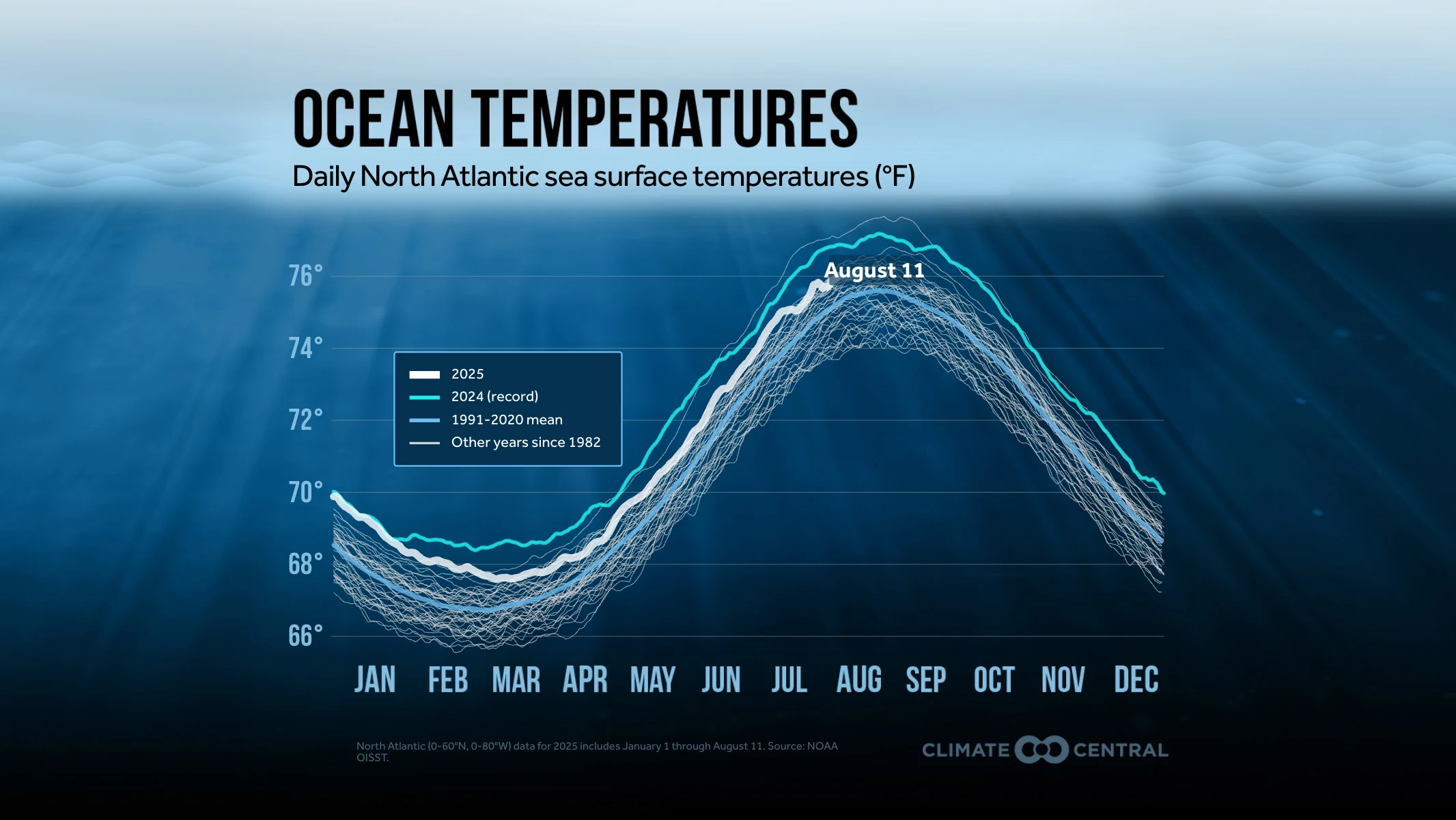Report•August 21, 2025
Climate change intensified Hurricane Katrina; could have been a stronger storm in today's climate
Twenty years ago this week, Hurricane Katrina became one of the worst disasters in U.S. history. Marking the 20-year anniversary, Climate Central used the Climate Shift Index: Ocean and Climate Shift Index: Tropical Cyclones systems to assess the influence of human-caused climate change on the devastating 2005 hurricane.
Katrina achieved its top wind speeds (175 mph) as a Category 5 storm over waters that were made, on average, 0.9°C (1.6°F) warmer as a result of climate change. Our analysis determined that climate change made these ocean temperatures up to 18 times more likely and, along with tropical climate warming, increased Katrina’s maximum sustained wind speed by 5 mph. A 5 mph increase could have increased Katrina’s damages by 25% or more, according to NOAA.
Every tenth of a degree of ocean warming increases the risks of stronger storms and higher sea levels. And because of climate change, water temperatures in 2025 are warmer than in 2005, opening up the potential for even bigger increases in wind speed.

What do experts say?
Dr. Daniel Gilford, Meteorologist and Climate Scientist at Climate Central, said:
“Already back in 2005, climate change was influencing Atlantic hurricanes and their impacts. If Katrina had formed in today’s climate, it likely would have been even more powerful.“
How do we know climate change influenced this storm?
The Climate Shift Index: Tropical Cyclones (Tropical Cyclone CSI) is grounded in peer-reviewed methodology from 2024. It quantifies the impact of human-caused climate change on a storm's intensity.
The Tropical Cyclone CSI calculates the increase (or decrease) in a storm’s wind speeds because of climate change-warmed ocean waters and tropical climate warming.
This system is built on the foundation of the Climate Shift Index: Ocean (Ocean CSI), which is also grounded in peer-reviewed methodology. The Ocean CSI indicates how human-caused climate change has influenced the likelihood of daily sea surface temperatures occurring at nearly any location around the world’s oceans.
In the last 20 years, and even in the last 10 years since we wrote this post, the field of event attribution science — which enables us to quantify the influence of climate change on extreme weather such as hurricanes — has evolved significantly. Key advances include our Climate Shift Index systems; a better understanding of how increases in potential intensity affect observed intensities; improved climate and storm modeling; and the strong emergence of the climate signal: global temperatures have risen by approximately 1.3°C since the pre-industrial period and 0.5°C since 2000.
To request an interview with a Climate Central scientist, please contact Tom Di Liberto at tdiliberto@climatecentral.org.

